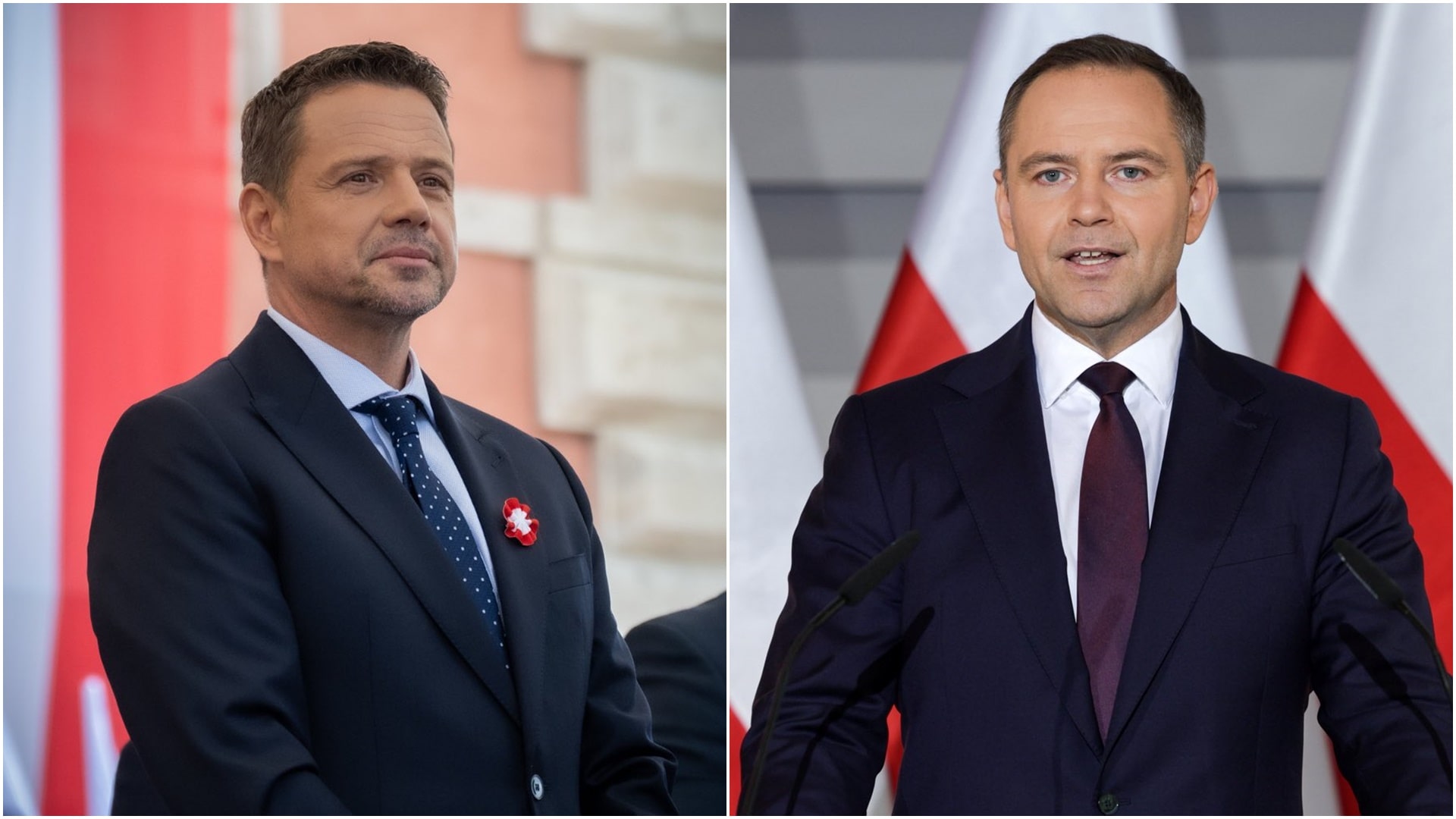The world woke up to a political shockwave as Donald Trump clinched victory in the U.S. presidential election, defeating Kamala Harris to become the 47th president of the United States. This historic comeback marks Trump’s second term, following his tumultuous first term, which ended with controversy and criminal charges. Trump’s victory signifies not just a change in U.S. leadership but potentially a transformative shift in global politics, trade, and defense, with significant implications for Europe, the ongoing war in Ukraine, and nations like Poland.

Trump’s Second Term: A Radical Shift in U.S. Policy?
Trump’s policies during his first term emphasized “America First” and a strong isolationist stance, which resonated with many voters but worried traditional allies. His return to the White House signals a continuation of this populist, nationalist approach. Trump’s platform includes tariffs on imports, stricter immigration policies, and a reevaluation of U.S. commitments abroad, including NATO.
This time, however, he may go even further. Trump has proposed drastic tariffs on imports, particularly a 60% tariff on goods from China, which experts warn could increase inflation and impact global trade. He’s also pushing for significant cuts to federal regulations and taxes, including eliminating taxes on Social Security benefits for seniors. These policies could create ripple effects on the global economy, impacting not only trade but also how countries approach their economic relationships with the United States.
Europe: Bracing for New Tensions in NATO and Trade
Trump has openly questioned the relevance of NATO, a pillar of European defense and stability since World War II. His remarks about “reevaluating NATO’s purpose” signal that he might reduce American involvement in the alliance, pushing European nations to take on more responsibility for their own defense. This could strain U.S.-Europe relations and force European nations to increase their defense spending, as they can no longer rely as heavily on U.S. support.
European leaders, especially those in NATO, are likely to approach this new U.S. administration with caution. Trump’s focus on protectionism and isolationism could lead to conflicts with the European Union, which advocates for free trade and multilateral cooperation. If Trump’s policies lead to trade restrictions or tariffs on European goods, the EU may respond with its own trade measures, potentially sparking a transatlantic trade war.
Impact on the Ukraine War
One of Trump’s most controversial campaign promises was his stance on Ukraine. He suggested that Ukraine may need to cede territory to Russia to end the ongoing conflict, a proposal that contradicts U.S. and European support for Ukraine’s sovereignty. If Trump follows through on this stance, it could shift the dynamics of the war, potentially reducing military and financial support for Ukraine.
Without strong U.S. backing, Ukraine may struggle to resist Russian advances, putting immense pressure on Europe to fill the gap left by the U.S. This would mean that European countries, already providing support to Ukraine, would need to ramp up their assistance to prevent further Russian aggression. A weakened Ukraine would also be a security concern for nearby countries, particularly those with historical tensions with Russia, such as Poland and the Baltic states.
Poland: Standing at a Crossroads
For Poland, a nation situated near the conflict in Ukraine and with a long history of tensions with Russia, Trump’s presidency brings both challenges and uncertainties. Poland has been one of the most vocal supporters of Ukraine, providing military aid and refuge for Ukrainian citizens. With Trump potentially reducing U.S. involvement in NATO and support for Ukraine, Poland might feel the pressure to increase its defense spending and strengthen its own military capabilities.
Trump’s stance could also strain Poland’s relationship with the U.S. Poland has long seen the U.S. as a critical ally against potential Russian aggression, but with Trump’s unpredictable foreign policy, this relationship could be tested. Poland may be forced to seek closer alliances within the EU, especially with countries like Germany and France, to ensure its security.
Trump’s Victory: What It Means for Global Stability
Trump’s return to the White House reflects the rise of populist, nationalist ideologies that have been gaining traction worldwide. His victory reinforces a shift away from globalism toward a more insular approach to governance. This trend could inspire similar movements in other countries, particularly in Europe, where right-wing parties are already gaining ground. A U.S. less focused on international alliances might embolden countries with expansionist goals, increasing global instability.
Trump’s stance on immigration, trade, and defense also sets a precedent that other leaders might follow. His proposed policies for deportations, trade restrictions, and a militarized approach to domestic issues might influence how governments worldwide handle similar issues, potentially leading to a rise in authoritarianism.
Final Thoughts: The World Watches Closely
Donald Trump’s presidency brings an uncertain future for the world. His policies challenge the norms of U.S. democracy, and his populist rhetoric has divided American society. As Europe, Ukraine, and countries like Poland brace for these changes, leaders around the world will need to adapt to a shifting landscape, balancing their interests in a global environment that may become more fractured.
Trump’s win underscores a key message: the political landscape is shifting toward populist and nationalist ideals. Whether this will lead to new conflicts or a realignment of global power structures, only time will tell. One thing is certain, though: the world will be closely watching how Trump’s policies shape the years ahead.





